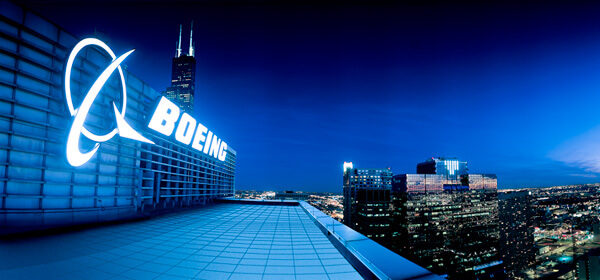While presenting its financial results for the first quarter of 2019, Boeing estimated the price of the 737 MAX grounding since mid-March at $1 billion. This number only takes into account an increase in production costs for the aircraft. Possible compensations for the victims’ family and the airlines are left out for now.
Net profit fell 13% to $2.1 billion compared to the same period last year, while revenues are at $ 22.9 billion, down 1.98%, the aircraft manufacturer said in a statement. The Boeing backlog remains substantial with over 5,600 airplanes valued at $399 billion.
Impacted by the grounding of the 737 MAX, which led to an interruption of deliveries, Boeing decided to suspend the annual goals that were issued earlier this year. After reporting the best financial results in its history in 2018, the manufacturer had forecasted a 20% increase in operating income for the next year. Boeing says that new guidance should be issued at a future date.
“Across the company, we are focused on safety, returning the 737 MAX to service, and earning and re-earning the trust and confidence of customers, regulators and the flying public,” said Boeing Chairman, President, and Chief Executive Officer Dennis Muilenburg.
After the production of the Boeing 737 MAX was reduced from 52 to 42 aircraft per month, deliveries of all civil aircraft fell to 149 units, a 19% decrease compared to the same quarter of the previous year.
Contrary to what some expected, no date was given for the submission of the 737 MAX update to the Joint Authorities Technical Review (JATR), the committee composed of nine aviation regulators that will review the changes of the aircraft’s automated flight control system.
But the grounding of the Boeing 737 MAX is not the only setback that the manufacturer faced lately. In fact, it has now has accumulated quite a few.
The most recent one surrounds the 787 Dreamliner. On April 20, 2019, an investigation carried out by the New York Times reported that several employees doubted of the aircraft’s safety. The research was based on internal e-mails, administrative documents, and interviews of several employees
The newspaper points at the group’s state-of-the-art factory opened in 2009 near the city of Charleston, South Carolina. After shortcomings in its capacity to meet delivery deadlines, the company allegedly pushed its employees to speed up the production output. This led to metal debris being found in the wiring of some aircraft, and even a ladder and work lights near the gears of a horizontal stabilizer.
According to the New York Times, Qatar Airways stopped accepting planes from this specific factory after manufacturing accidents that damaged jets and delayed deliveries. The airline did not confirm this information.
As for Boeing, it denied all the allegations of the investigation in a corporate letter. In fact, Brad Zaback, Vice President and general manager of the 787 Program states that “our quality metrics show that we are performing at all-time high levels as well”.
It is not the first time that Boeing is faced with a production problem lately. The United States Air Force interrupted the deliveries of the KC-46 Pegasus tanker aircraft twice, on February 28, 2019, and on March 23, 2019, after foreign object debris (FOD) and loose tools were found in the tankers they received. Here again, these quality discrepancies could be attributed to a deliberate will to speed up production, as the KC-46 deliveries are already running late by several years.

